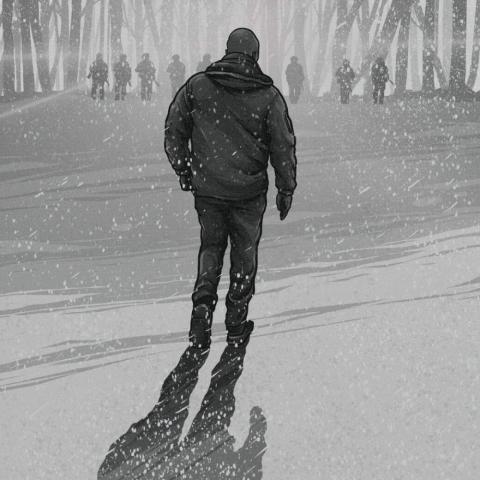Apotheosis of the Warrior Eugene
Primary tabs

Dasha, back at the very beginning of the Special Military Operation, once told me: “Prigozhin is so strong and confident, bold, sharp, that probably no one prays for him. It doesn’t even cross anyone’s mind. Let’s at least start praying for him.”
Today we commemorate (not according to the calendar, but according to the meaning) Moses of Murin, Barbara of Loukan, the seven martyrs of Kerkyra: Iakiskholos, Faustianus, Ianuarius, Marsalius, Euphrasius and Mammius, St. Anthony of Karea. And of course the one who was the first to be in paradise.
We did not notice how we moved from a giggling society to a people deeply immersed in the element of tragedy. Some had already, piercingly realized it in themselves. Some are on the way. Pain, sorrow, grief, anguish, suffering, deafening rage—this is the register of states of a normal person who has entered the structures of war. But also strong faith, quiet hope, a maturing will, a growing mind, a hardened spirit.
The very fact of the death of the heroes of “Wagner” is much more fundamental than the reasons, manipulations and speculations around it. There is no need to get bogged down in details and versions. We are at war, and war means death. And Prigozhin entered the war wholeheartedly, gave himself to it. No one can escape war. Prigozhin realized it before anyone else and did not resist. He acted like a man. And died like a man.
In general, the Wagner group had a special attitude towards death—just face it.
At some point, everyone’s death will come to them. And there is no use squealing about what I am in for. There is always a reason. Prigozhin knew exactly why. God rest the soul of your slain servant, the warrior Eugene.
You know best what to do with him. We only pray that Thy will be done. But still, if it is possible, forgive him. For the sake of Russia, Your country, Your people, forgive him. And forgive us.
If the diabolical enemy is targeting our heroes, it means that we have heroes.
Life, like death, can only be random in random people. There, perhaps, it is mechanical millstones and the sporadic intrusion of randomness. Real people have a destiny, which means a higher meaning, a deeper significance and a great logic—both in life and death. Meaninglessness is far worse than death. Prigozhin, Utkin and the other “Wagner” people were anything but random people.
The power of the people is that thousands take the place of one fallen hero. This is how the people testify that they are alive. Yesterday was the end of the age of technology. The era of ontologies—Russian existence and its laws—is beginning. From now on, it is necessary to speak responsibly and seriously about everything. As if in the presence of people, the tribunal, conscience, death.
The relation of Russians to each other goes not from person to person, but somehow otherwise. Maybe through the land. And, so, through the Russian land we understand, pity and feel each other. Both the living and the dead.
In our hell they were, indeed, the best.
